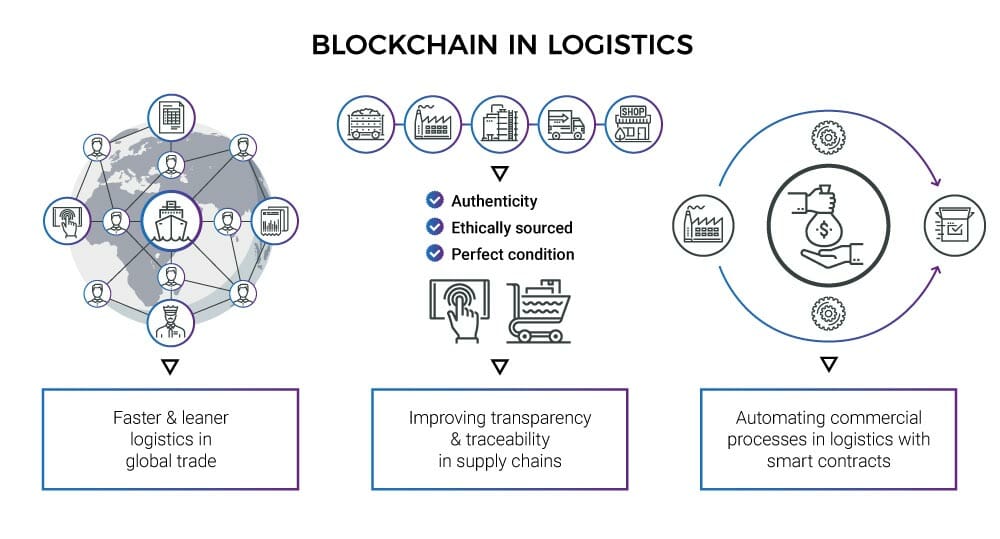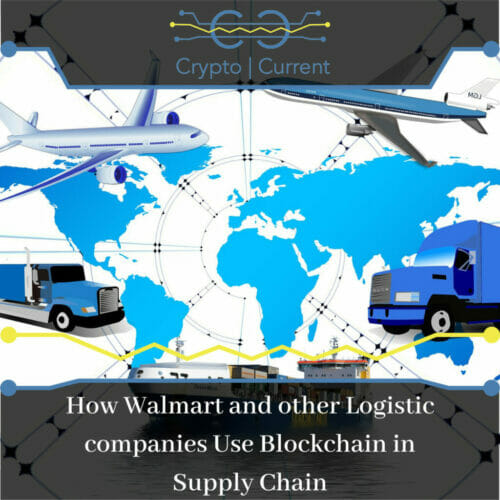How Walmart and Other Logistics Companies Use Blockchain in Supply Chain
Major companies are utilizing Blockchain to solve real-time data access, partners’ privacy, traceability, and auditability challenges. However, the supply chain industry, like other industries, has low traceability, complex compliance needs, low flexibility, and difficult stakeholder management, which are gaps that Blockchain can fill. Walmart, IBM, and other logistic companies are designing Blockchain protocol and smart contracts that will provide a solution.
Consequently, this article highlights the challenges in the food and supply chain industry and further shows how Walmart and other logistic companies are using Blockchain in the supply chain.
The Challenges
Most diseases are foodborne, which is a result of food intake and loopholes in the supply chain. More so, non-foodborne disorders could be prevented, if traceability on the supply chain exists. For instance, if there is better traceability in the supply chain, the Covid-19 case would be easier to trace such the affected chain, region, or laboratories could be isolated for investigation and proper treatment.
It will be easier to isolate infectious farms than a total economic lockdown. The supply chain industry says a lot about the stability of the economy. However, apart from saving cost, traceability, and greater transparency, Blockchain in the supply chain has a lot in common.
Nonetheless, Gartner predicted that by 2023, 30 percent of manufacturing companies with more than $5B in revenue would have to implement Blockchain-powered projects. In affirming the Gartner report, Walmart and other logistic companies are already finding solutions to food traceability. Meanwhile, Walmart is one of the most prominent players in the space.
How Walmart is Changing the Game with Blockchain
Walmart’s solution is built on Hyperledger Fabric, a private permissioned Blockchain to make the first pilot case. Walmart proved that Blockchain in the supply chain is suitable for a decentralized food supply ecosystem. Walmart, together with its technology partner, IBM, started a hypothesis with two proof of concept projects in 2018 by tracing mangos and pork in the U.S. and China stores, respectively.
Interestingly, these two pilot cases worked and they are currently supporting over 25 products. The pork store traceability project allowed uploading certificates of authenticity to the Blockchain. On the other hand, Walmart, in partnership with IBM and Tsinghua University, ran a pilot case of Blockchain and IoT sensors that detect Mexican mangoes shipped to the U.S. In the end, it was found that it reduces the time of provenance from 7 days to 2.2 seconds.
This is due to products being labeled with numeric identifiers, usually six digits, and each checkpoint being signed and logged before shipments. During the shipment process, the pilot allows Walmart to track farm origins, batch numbers, processing data, expiration dates, storage temperatures, and many other shipping details.
At the delivery point, the pilot case shows that Walmart employees can pull the identification numbers into the web portal within two seconds.
From two products, Walmart can trace the origin of over 25 products from 5 different suppliers and count. Interestingly, it confirmed plans to roll out the system to more products in the future, announcing that suppliers of fresh leafy greens are encouraged to leave their products using the system.

Other Logistics Companies Using Blockchain in Supply Chain
Apart from Walmart, one of the biggest eCommerce companies that run a chain of hypermarkets, departmental, and grocery stores all across the globe, there are other companies to take note of:
Fed Ex:
FedEx: The company joined British Airways in February to indicate interest in applying Blockchain in the supply chain. Since then, it has launched a Blockchain-powered pilot program for settling disputes. Besides resolving customer disputes, they also hope to apply Blockchain to store records, according to the Vice President of Strategic Planning and Analysis, Dale Chrystie.
British Airways:
In 2017, British Airlines tested Blockchain to manage data about flights between London, Geneva, and Miami, according to the Wall Street Journal. The pilot case is to reduce conflicting flight information coming from gate monitors, flight apps, and the airline’s website.
Takeaways
Almost every industry will find the importance of Blockchain to cut costs, improve transparency, and other solutions. Hence, the supply chain is not left behind, as more companies are indicating interest to leverage Blockchain’s smart contracts, governance, and distributed ledger technology in the supply chain.
Okereke has a passion for researching blockchain and cryptocurrency. He enjoys creating long form educational content to inform others on the opportunities in this space.










